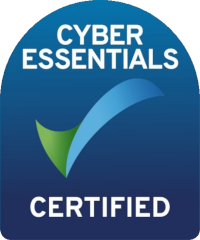BLOG
The Hidden Costs of Slow Software in Education and Non-Profit Organisations
Discover how sluggish software impacts productivity, engagement, and user retention - and how to fix it.
- Service Delivery
- Technology
- 25-06-2024
The Impact of Slow Software on Educational and Non-Profit Organisations
In today’s digital age, software performance is critical for the success of educational institutions and non-profit organisations. Slow software can frustrate users, reduce productivity, and undermine mission-critical activities. Understanding and addressing software performance is key to keeping students, staff and stakeholders engaged.
Why User Engagement Matters
User engagement measures how actively and attentively people interact with software. High engagement in education and non-profits drives better learning outcomes, volunteer satisfaction, and donor retention. Conversely, disengaged users are less likely to return, participate, or contribute.
The Consequences of Slow Software
1. Decreased Productivity
Slow applications cost time. Forrester Research reports employees can lose up to 22 minutes daily due to sluggish software - nearly two weeks per year. In education, this reduces teaching time; in non-profits, it delays fundraising, volunteer coordination, and outreach.
2. User Frustration and Stress
Laggy software increases stress. Research from the University of North Carolina found slow digital tools can raise stress levels by up to 34%. Frustration can negatively affect learning, staff satisfaction, and volunteer motivation.
3. Lowered User Retention
Slow software drives users away. Akamai Technologies shows a two-second delay can double web bounce rates. Students may abandon online courses, and donors or volunteers may switch to faster, more reliable platforms.
Case Studies: Real-World Impact
Education Providers
A UK survey found 78% of students frustrated with slow learning management systems (LMS). One university reported a 25% drop in online course completion due to sluggish performance.
Non-Profit Organisations
A UK charity experienced a 15% decline in online donations over a year because its donor software often crashed during peak periods. Volunteers spent excessive time on data entry, lowering satisfaction and retention.
The Psychological Cost: Cognitive Load
Slow software increases the cognitive load - the mental effort required to complete tasks. Cognitive Load Theory explains that when working memory is overloaded, learning and productivity suffer. For students, slow software diverts attention from learning; for staff and volunteers, it shifts focus from mission-critical work to managing technical issues.
Negative emotional responses, like frustration and anxiety, also harm user engagement. Nielsen Norman Group research confirms that poor software performance directly reduces user satisfaction.
How to Fix Slow Software: Best Practices
1. Performance Monitoring
Use tools like New Relic or Dynatrace to track and resolve bottlenecks. Regular monitoring prevents slowdowns before they impact users.
2. User Feedback Loops
Gather insights from students, staff, and volunteers. Prioritising feedback ensures the most critical issues are addressed quickly.
3. Cloud Solutions and Scalability
Cloud platforms such as AWS, Microsoft Azure, and Google Cloud provide scalable solutions that maintain fast performance even during high traffic periods.
4. Regular Updates and Maintenance
Keep software, infrastructure, and hardware up to date. Preventative maintenance reduces performance issues and downtime.
5. Training and Support
Educate users on optimised workflows and offer support for minor issues. Well-trained users handle problems independently, improving overall experience.
Future Trends in Software Performance
AI and Machine Learning
AI can preemptively resolve performance issues, while ML personalises user experiences to boost engagement.
Edge Computing
Processing data closer to users reduces latency, improving software performance, especially in areas with limited connectivity.
Progressive Web Apps (PWAs)
PWAs combine web and mobile features for fast load times, offline functionality, and seamless cross-device experiences.
For educational and non-profit organisations, slow software is more than a nuisance - it directly impacts productivity, engagement, and retention. By monitoring performance, gathering feedback, leveraging cloud solutions, and keeping software updated, organisations can create faster, more reliable, and user-friendly digital environments.
Investing in software performance ensures that students, staff, volunteers, and stakeholders stay engaged, helping these organisations fulfil their mission effectively.

Neil Cullen
Founder & CEONeil is passionate about using technology to improve organisations and help them meet the needs of stakeholders and end-users.
Contact us
If you'd like to know more about how we can help your organisation, please get in touch.
Subscribe to our newsletter
About Us
Innovative digital solutions for education - supporting policy, leadership, delivery, and learning

Useful Links
Contact Us
Trent Lodge
Stroud Rd
Cirencester
GL7 6JN
0117 4573283